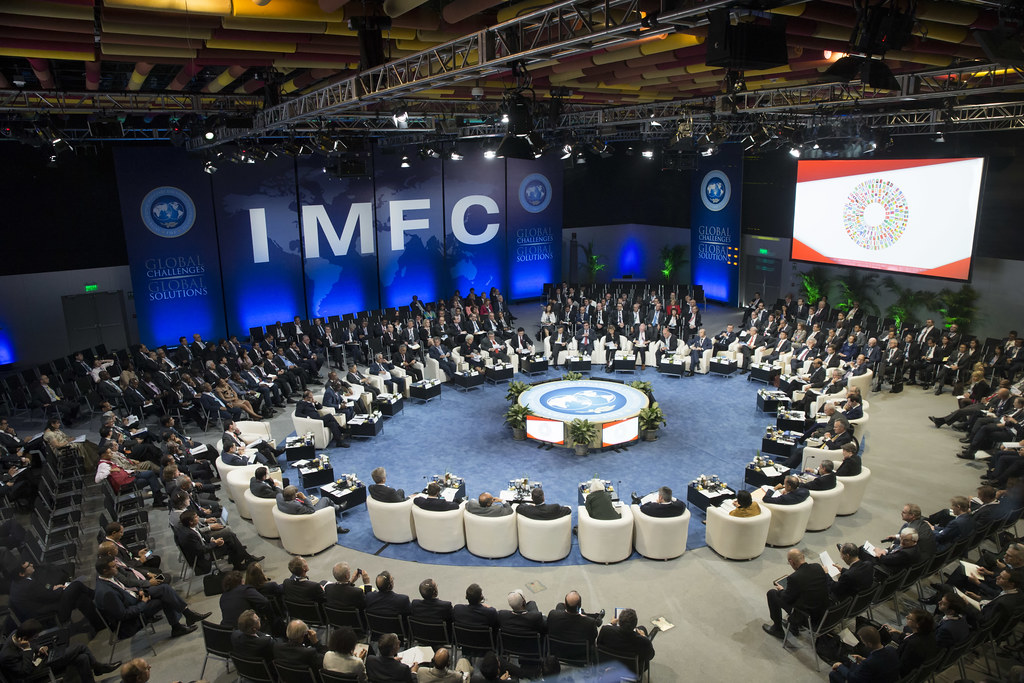by Tony Burke
THE Venezuelan government wrote to the International Monetary Fund (IMF) seeking funds from its rapid financing instrument (RFI) to “strengthen its detection and response systems” during the coronavirus pandemic.
The IMF claims that RFI loans “can be disbursed very quickly to assist member countries implement policies to address emergencies such as the coronavirus” and has allocated $50 billion (£40bn) to the fund.
This decision not to grant an RFI then, seems to illustrate that it is really the US Trump administration, with its unremittingly hostile policy of securing illegal regime change through sanctions against Venezuela, that is calling the shots at the IMF.
That hostility has been ratcheted up during the course of the Covid-19 pandemic. The US’s unilateral coercive sanctions, which now amount to a blockade, have already caused untold harm to millions of Venezuelans and the Venezuelan economy.
Numerous multilateral bodies, including the United Nations and the Non-Aligned Movement, have previously condemned US sanctions as being illegal under international law.
UN high commissioner for human rights Michelle Bachelet criticised the sanctions last August, warning that the sanctions “are extremely broad and fail to contain sufficient measures to mitigate their impact on the most vulnerable sectors of the population,” with “far-reaching implications on the rights to health and to food in particular.”
This is even truer today, in the midst of the coronavirus crisis, since the blockade measures mainly target Venezuela’s ability to purchase food and medicines. Securing the necessary testing equipment for the initial stage of the coronavirus, for example, is three times as difficult under the blockade, according to the Venezuelan government.
Yet in March the US announced new punitive measures against the Russian state energy giant Rosneft for buying oil cargoes from Venezuela’s state oil company PDVSA, while pressing companies in India, China and Spain to halt all purchases from Venezuela.
The knock-on effects of this are forcing Venezuela to sell its major source of revenue at below production cost at a time when crude oil prices have halved, reflecting forecasts for a global recession.
Iran, too, which has been subjected to long-term swingeing sanctions by the US, with serious effects on its citizens’ health and wellbeing, has also recently been further targeted for yet more sanctions. The US is levying these at a time when Iran’s Covid-19 mortality rate is the fourth-highest in the world.
The US and IMF positions have attracted widespread criticism. Even the European Union’s foreign ministers have supported both Venezuela and Iran’s requests to the IMF for financial aid to fight the pandemic.
As EU foreign affairs chief Josep Borrell explained following a teleconference with EU foreign affairs colleagues, “we are going to support this request because these countries are in a very difficult situation mainly due to the US sanctions that prevent them from having income by selling their oil.”
And in the US, where currently there are the highest number of confirmed cases of any country in the world, well surpassing Italy and China, Jeffrey Sachs, director of the Centre for Sustainable Development at Columbia University, has forcefully argued: “It is absolutely unconscionable to keep sanctions on at this moment. The only moral, sane and legal thing to do is stop the madness that is crippling other countries’ health systems.”
Tony Burke is the assistant general secretary of Unite and chair of the Venezuela Solidarity Campaign.
Sign the VSC petition here: www.change.org/p/international-monetary-fund-imf-grant-venezuela-its-cov…
This article originally appeared in The Morning Star

